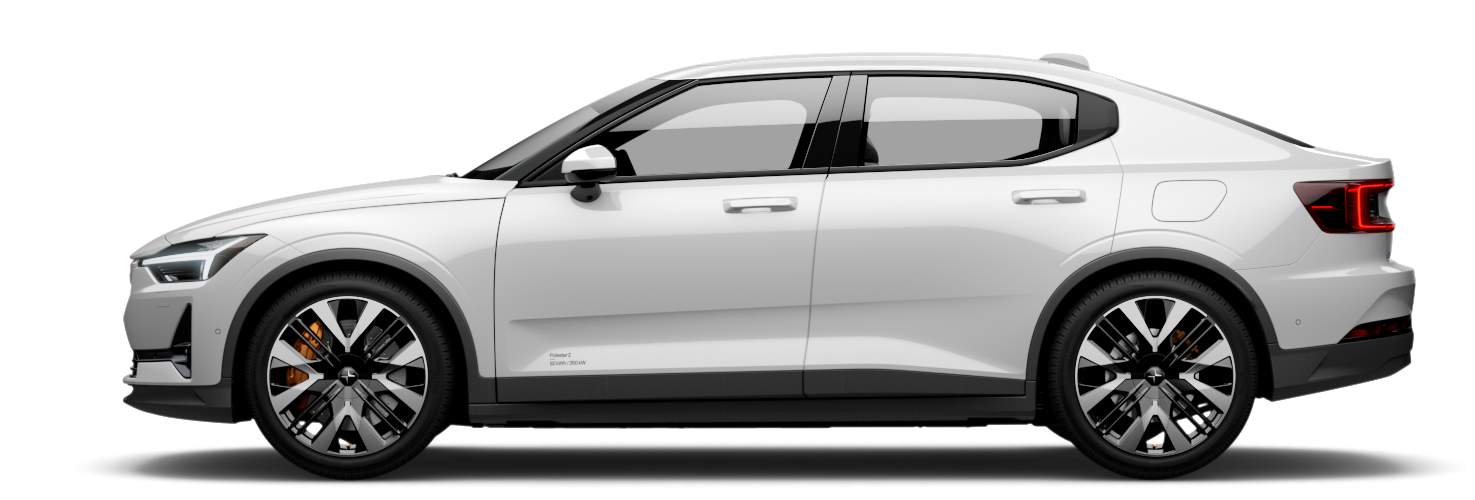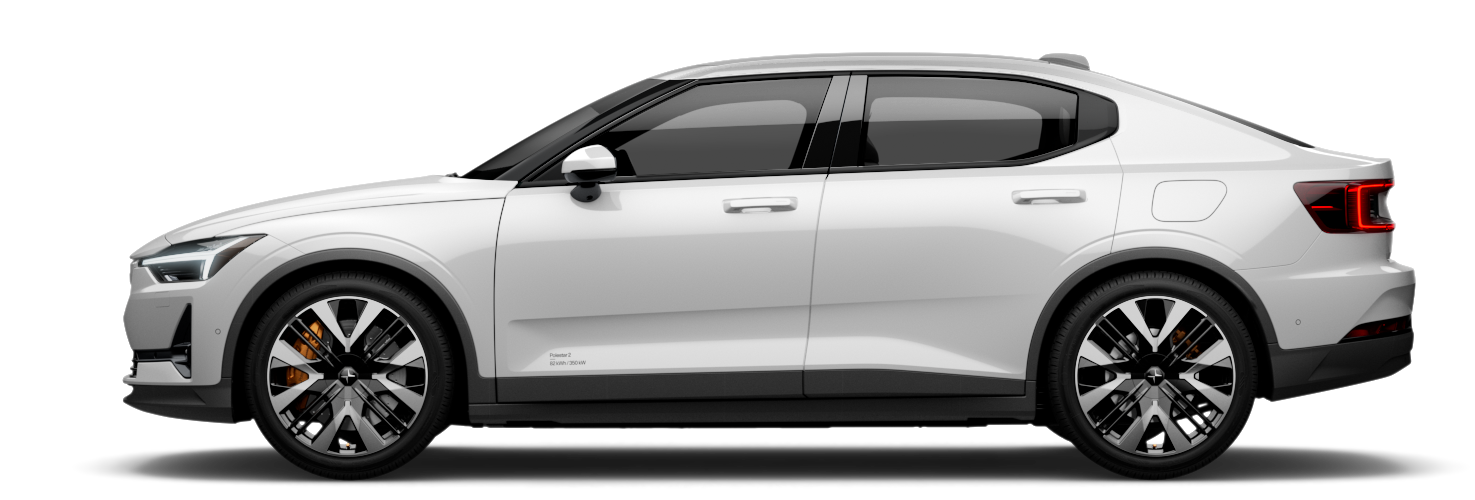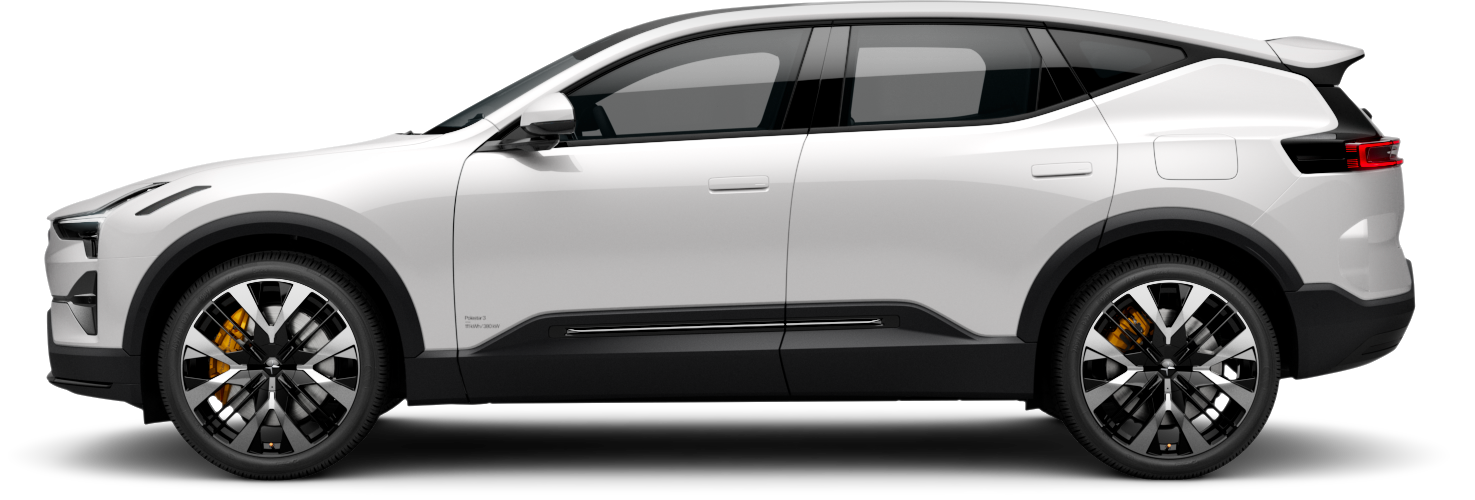Shredding surfboards to make sustainable skateboards
In the past decades, skateboarding has moved from the fringes of society to the TV screen, from subculture to the Olympic games. With that type of trajectory, we wondered what the next step for skateboarding might be. So, we traveled to the birthplace of skateboarding to find out. Surf and skateboard manufacturer Shred MFG tells a story of passion, craftsmanship, and a greener future for the boarding community.
The brief history of California boarding culture
When skateboarding was invented in the 1950s, the surfing scene in California was already booming. The interest in surfing in the region began at the beginning of the 20th century when Hawaiian surfer George Freeth brought his skill to a Southern Californian population that soon became captivated by the sport.
Shortly after that, when the automobile became more available, surfing hit big. Surfers could now load their large boards on the back of their cars and chase the best waves the West Coast had to offer.
However, the ocean is an unpredictable being, and when waves are flat, surfing is virtually impossible. With the surfing craze at its peak, enthusiasts set out to find a way to surf at times when the ocean lay still. Asphalt is nothing if not still - and it's readily available to all. And so, 'sidewalk surfing' was born.
This new take on surfing is credited as the start of skateboarding. Since then, skateboarding has grown into a popular sport performed in different styles, yet the community has kept that down-to-earth, no-fluff vibe at its core throughout the years.
Growing up on a board
Marcelo Gagliardi, founder and creator of Shred MFG, wants to carry on the iconic tradition by making boards for the future.
From an early age, surfing has been a big part of Marcelo's life. Ever since he can remember he's been infatuated with the wave-catching activity, and growing up by the beaches of Brazil meant he could spend his days following that passion. The appeal? A sense of freedom.
"It's a means of expressing yourself in a unique and free way. Every time you surf is a different experience, every wave you catch is different. It feels like a good balance between something healthy to do, something challenging, while also interacting with nature," Marcelo comments.
His infatuation with the sport is far from dwindling but has rather expanded to include so-called sidewalk surfing as well. He's even made his passion his livelihood.
Having worked for over a decade as a surfboard craftsman, Marcelo took the leap and started his own business. Today, Marcelo runs Shred MFG, a surfboard and skateboard factory based in California, the birthplace of skateboarding and the epicentre of surfboard production.
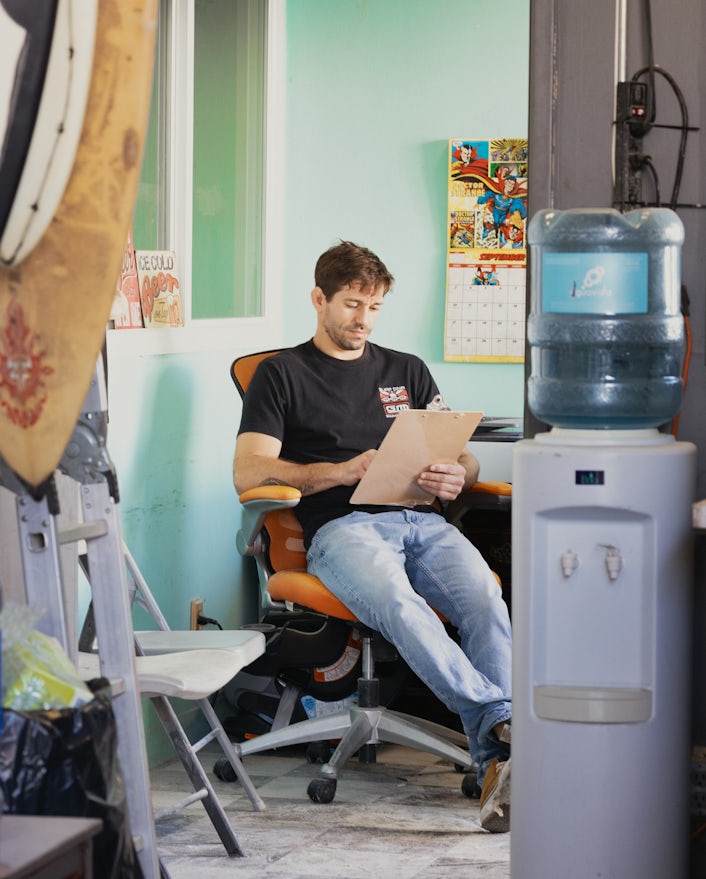
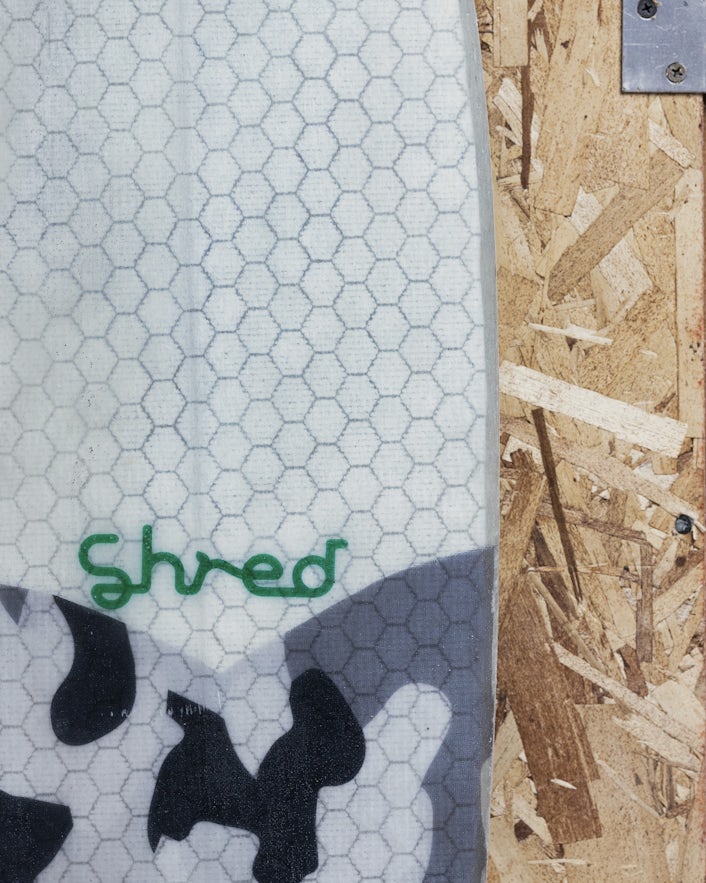
Shred is the concept of being able to create new products from waste and continuing the life of a product beyond a single use. Essentially, it's the notion that there are techniques that you can apply to create value from that trash and, in that way, keep the cycle going.
Shredding waves and making boards
Before getting into the nitty-gritty of sustainable board-making, we think a definition is in order. According to the surfer's glossary, shredding is when a surfer masterfully executes big turns on a wave that creates a lot of spray, by cutting (or shredding) the water with their board.
For Marcelo's business, shred refers to the waste from recycled surfboards they use to make skateboards. But for Marcelo and his team, the meaning goes beyond that of the actual material and process, to encompass the philosophy of the company.
"Shred is the concept of being able to create new products from waste and continuing the life of a product beyond a single use. Essentially, it's the notion that there are techniques that you can apply to create value from that trash and, in that way, keep the cycle going," comments Marcelo.
There's something poetic about Shred MFG's skateboards being borne out of recycled surfboards, just like skating was once borne out of surfing. We've come full circle, folks.
How to make a recycled skateboard
Back to the process and into the nitty-gritty. Shred MFG makes both surfboards and skateboards by hand. Their surfboards are high-quality, hand-crafted boards made from epoxy resins that are either shaped in the shop or delivered as ready-to-laminate boards.
From there, the team installs fins, completes airbrushing artwork or clear coat finishes, laminates the boards with fibreglass, and finishes by applying a hot coat and final quality controls.
The waste created throughout the process, such as excess resin and other by-products, is collected and placed into a large industrial shredder, creating a confetti-coloured shred. This 100 % recycled matter called "shred" is then used to make the core of the skateboards. The results? They speak for themselves. But how well do these boards ride?
For a long time, skateboards were mainly made from wood. Then, sometime in the 70's, light-weight plastic boards entered the market with modest success. Shortly after that, wooden boards became the industry standard. Plastic boards saw their rebirth in the 2010s when Australian brand Penny shone a light on the small plastic cruiser.
Marcelo ensures us that skating a Shred MFG composite skateboard is very similar to riding a skateboard with a wooden deck. The main advantage of the composite board, he says, is its longevity.
"Using proven construction methods, like those used in the automotive and in the aero industry, we can ensure strong and long-lasting constructions. We're excited to have applied those methods to an industry which it has not been applied to yet," Marcelo comments.
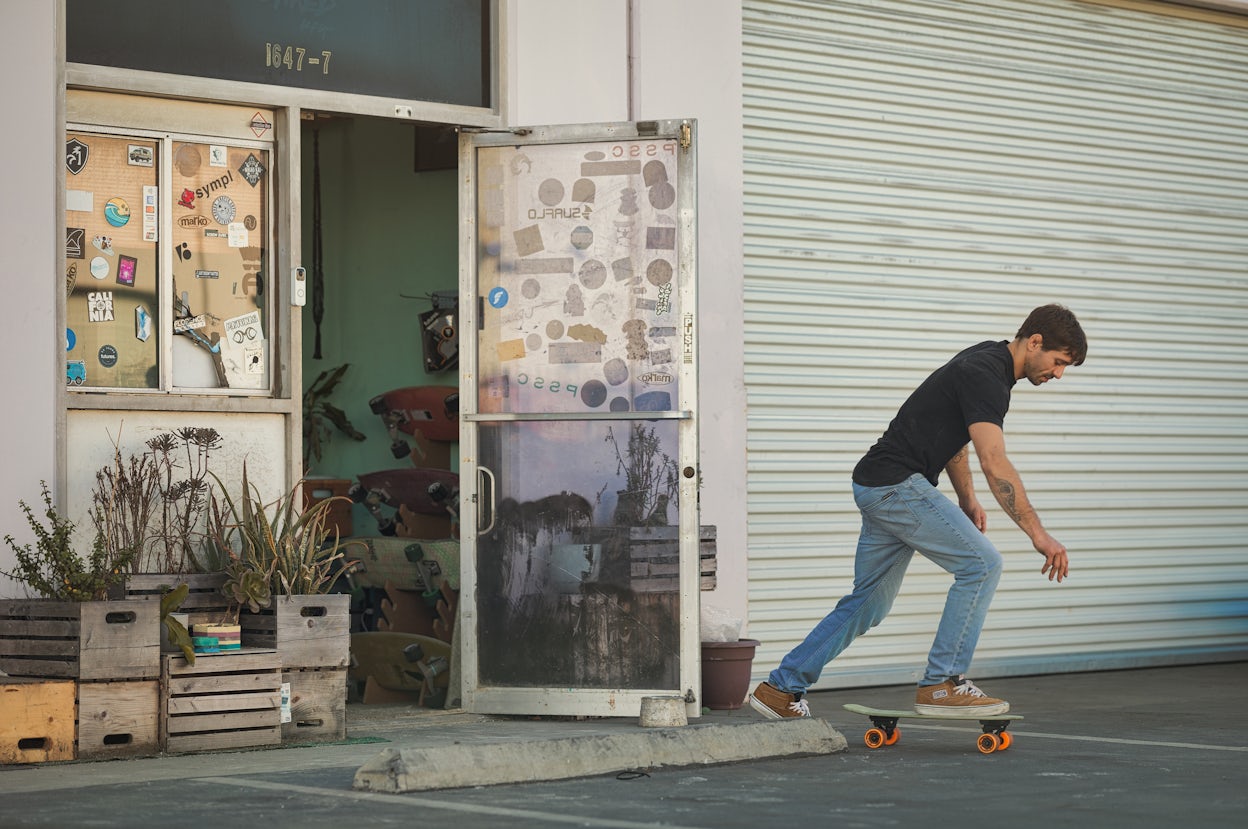
Being able to contribute simply by having sustainable practices in place, and by innovating in how we do things, is important to ensure that the next generation enjoy the same things that we enjoy today
Skateboards for the next generation
Starting his business from his garage, Marcelo is one of those people who managed to make his passion his profession. But also, by extension of his work, Marcelo is contributing to making the future of surfboarding and skateboarding a more environmentally friendly activity. A much-needed improvement given the trajectory we're currently on with rising sea levels and polluted cities.
"Having sustainability instilled as one of the pillars of our company is really important to us. You can only really enjoy these sports if the environment is healthy and welcoming," comments Marcelo.
Having grown up surfing the great big blue, Marcelo wants to pass that experience on to his kids.
"Being able to contribute simply by having sustainable practices in place, and by innovating in how we do things, is important to ensure that the next generation enjoys the same things that we enjoy today," Marcelo says. "We need to make sure these activities are available for those that need a different type of therapy, a different type of release. We want to pass that on with every product we make."
